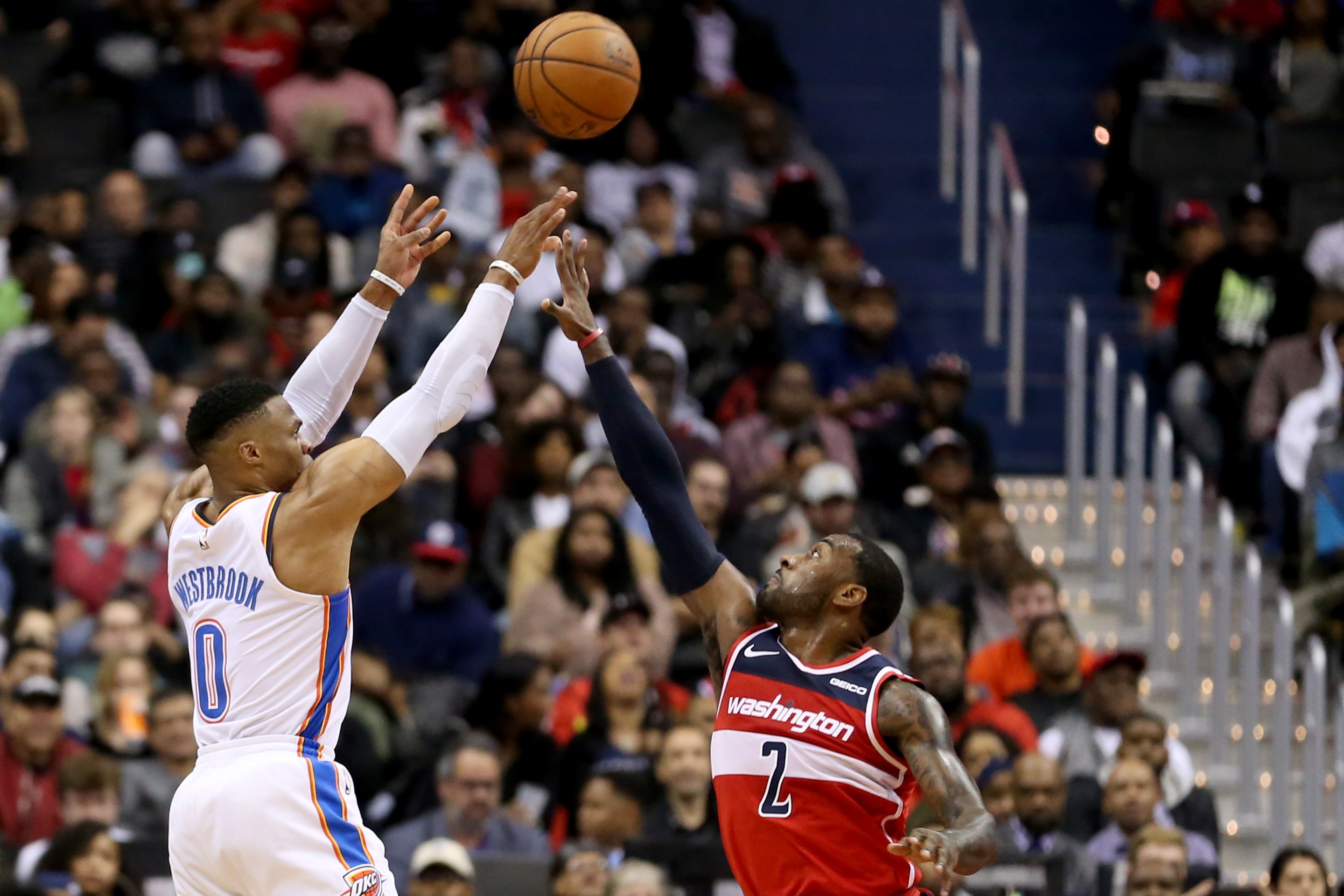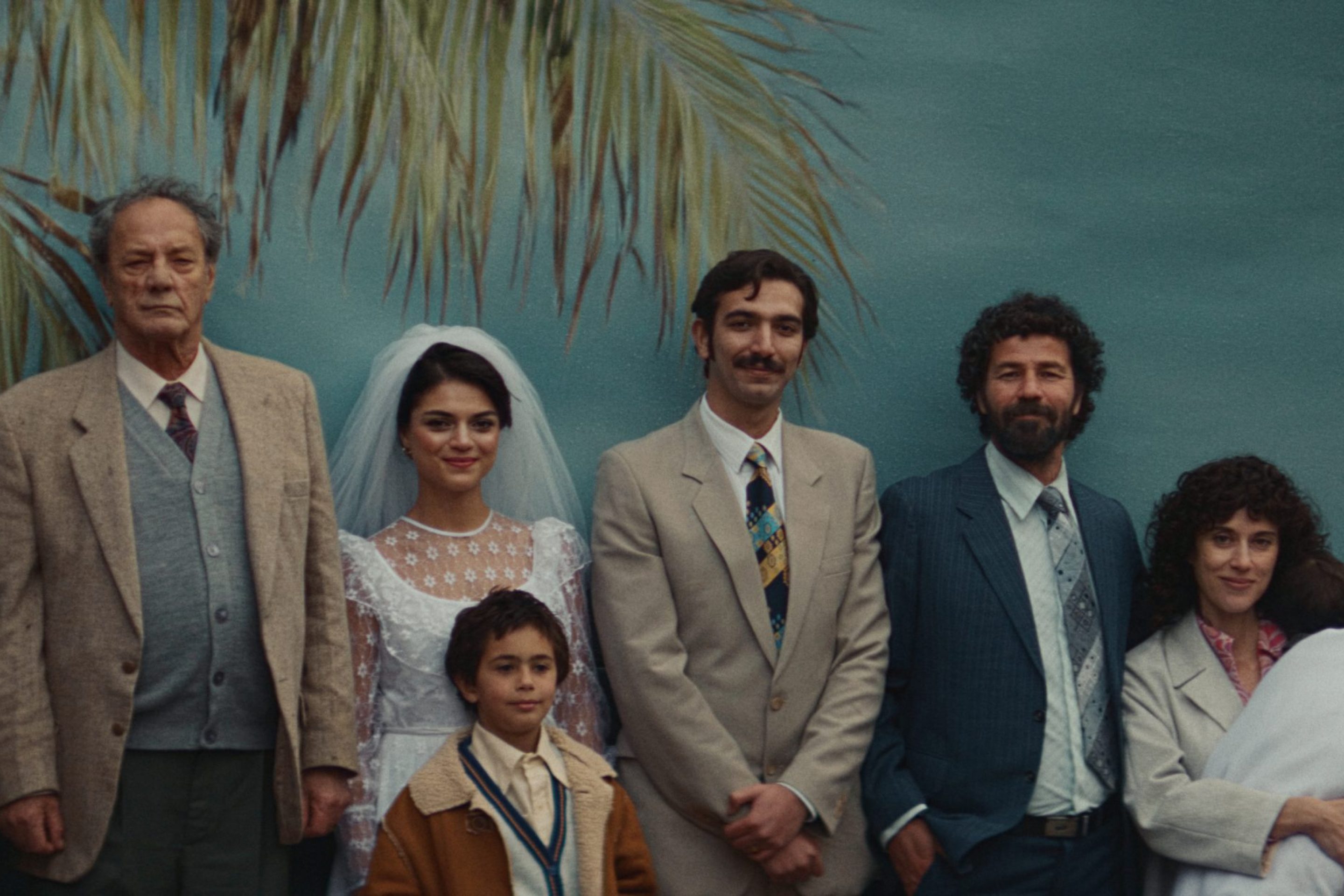What happens when an immovable contract meets an, uh, equally immovable contract? One of the oddest trades in recent NBA history.
The Washington Wizards and Houston Rockets executed a trade Wednesday night that will send point guard Russell Westbrook to Washington in exchange for point guard John Wall, who is finally ready to return to action after two years of foot injuries, and a protected first-round pick. The question is: why?
The Wizards and Rockets are similarly in flux: Each seems desperate to exit its previous era and become something different, but still have too much talent on the roster to allow for a full rebuild. But what truly stood in the way of either franchise's ability to start a gut renovation were the hefty contracts of their respective star point guards. Wall and Westbrook each have three years remaining on nearly identical supermax deals, and savvy league observers never missed an opportunity to talk about how un-tradable each of those contracts were.
In terms of how this trade alters either team's medium-to-long term team-building plans, the answer is not much. The Rockets' chances at making one more big playoff run aren't shifted much by swapping Westbrook for Wall, nor is their outlook in the long run if they eventually decide to trade Harden as well. The Wizards were already a fringe playoff team, and will remain one with Westbrook in place of Wall.
The trade is perhaps more meaningful for the individual players than it is for the teams. Wall reportedly requested that the Wizards trade him earlier this offseason, and Westbrook's brief reunion with Harden seemed to have run its course by the end of last season. Given their contracts, Wall and Westbrook probably could only have been traded for each other, but each have landed in decent situations despite their limited options.
Westbrook is reportedly happy to go to the Wizards, where he will get to reunite with head coach Scott Brooks and team up with one of the best scorers in the league in Bradley Beal. Any team that can throw Westbrook, Beal, Davis Bertans, and Rui Hachimura on the floor together will at least score a lot of points and be pretty fun to watch.
As for Wall, he finally gets out of D.C. and away from the always fraught relationships that have existed between himself, the organization, and the city. What kind of situation he'll find himself enjoying in Houston still remains to be seen. The Rockets continue to float reports that they are committed to keeping Harden this season, and if that's the case then Wall will have the opportunity to do for the Rockets what Chris Paul and Westbrook never could. Even if Harden ends up getting traded, though, things won't be all bad for Wall. Any deal involving Harden would likely bring back several decent players. If Wall is healthy and still able to play at a relatively high level, there are worse fates for him than having to spend the next three season playing with Caris LeVert and Spencer Dinwiddie.
NBA trades are fun when they raise the possibility of some seismic shift in a team's fortunes or the league's hierarchy. Maybe that's why this one felt vaguely depressing when the news broke. Sure, there are two big names involved, but the Rockets and Wizards are both in essentially the same positions they were yesterday morning. But maybe that's the wrong way to think about this trade. A better way, in a league where increasing numbers of fans root for individual players as well as teams, is to look at what it means for Wall and Westbrook. Wall gets a chance to reignite his career without all the baggage that comes from trying to re-establish himself as D.C.'s chosen hero, and Westbrook gets to have fun playing with his old coach and a star teammate who should be a much better fit with him than Harden ever was. The NBA's tectonic plates have not shifted, but at least two cool and fun players get to try something new.






